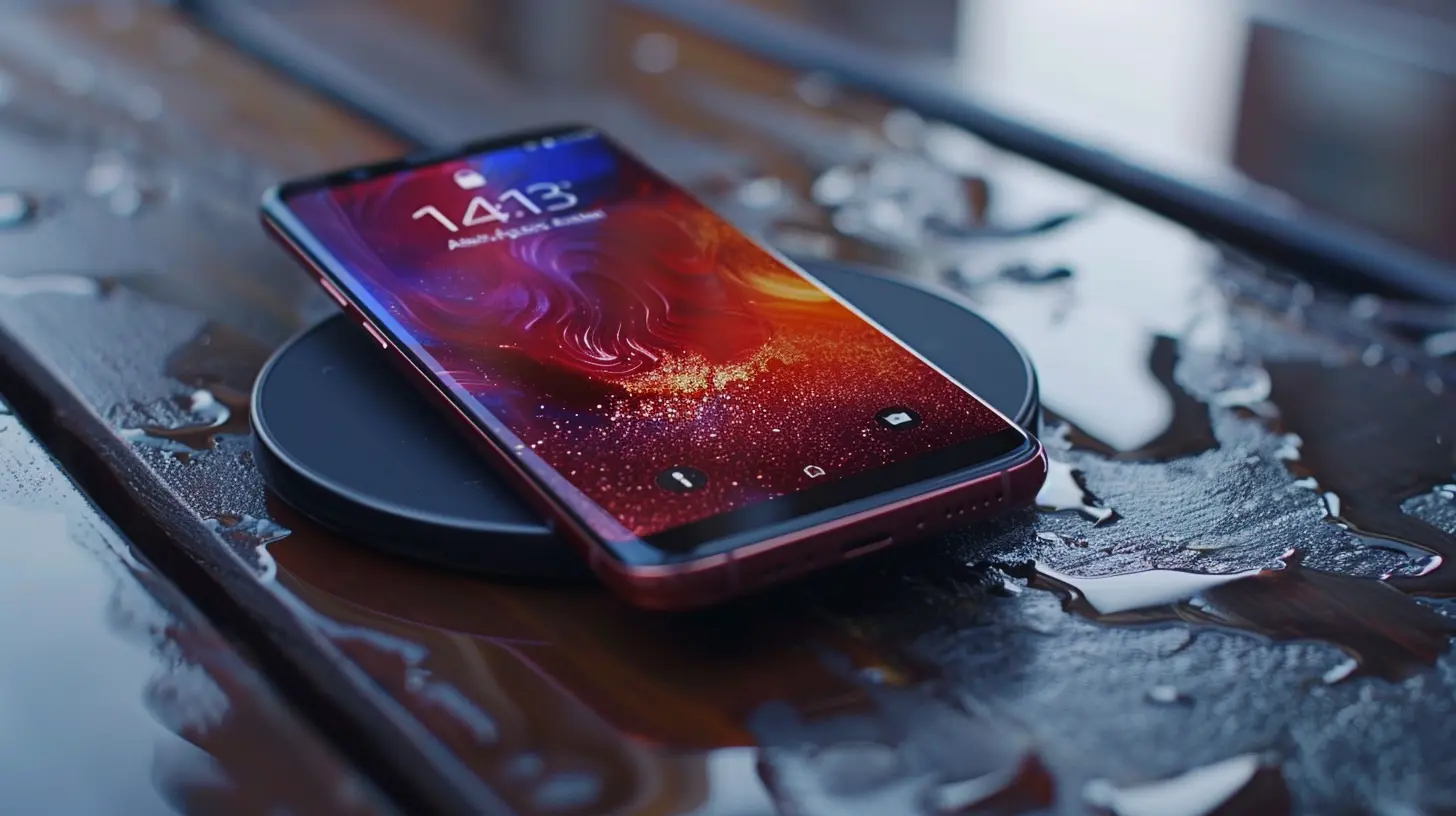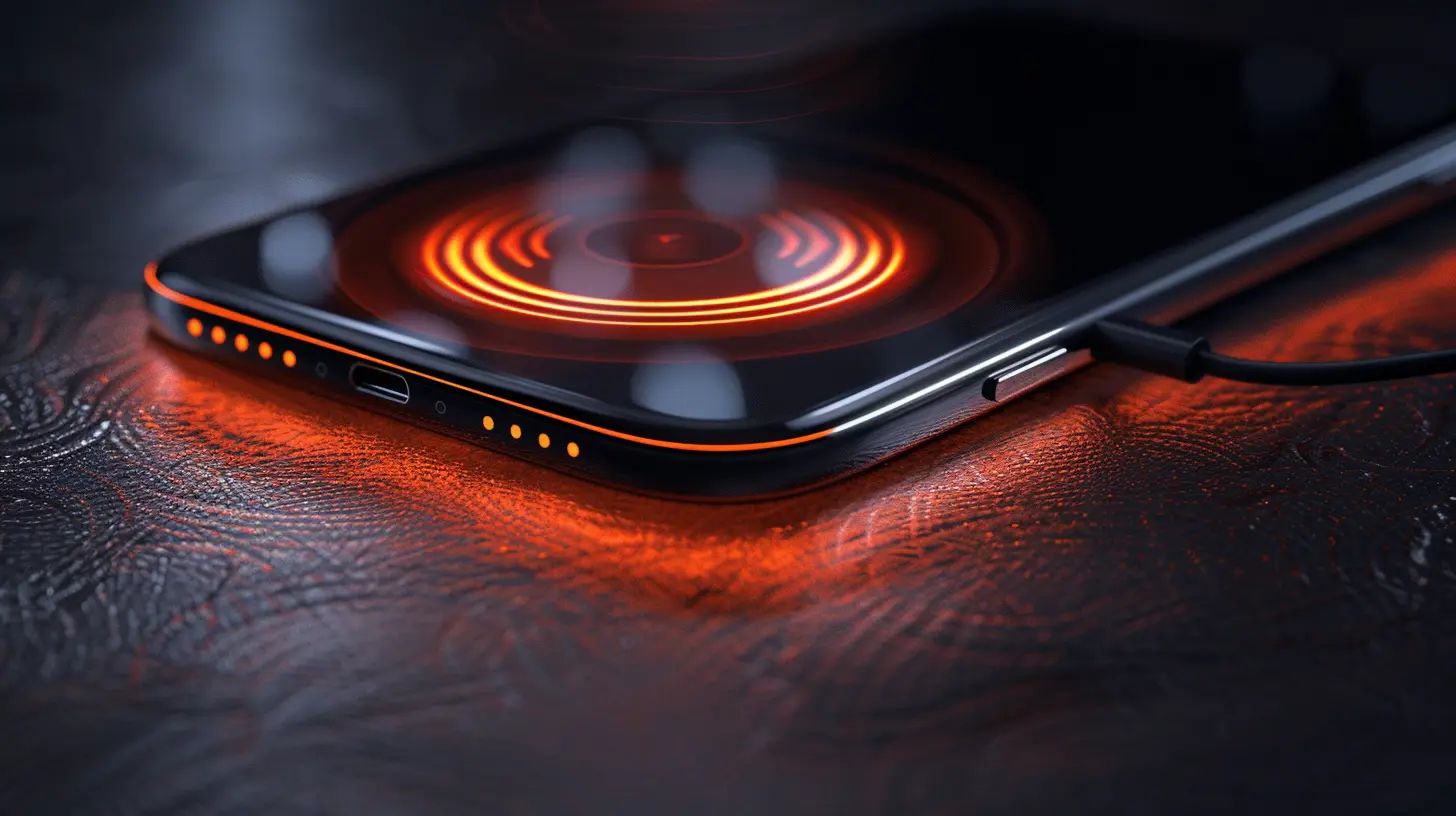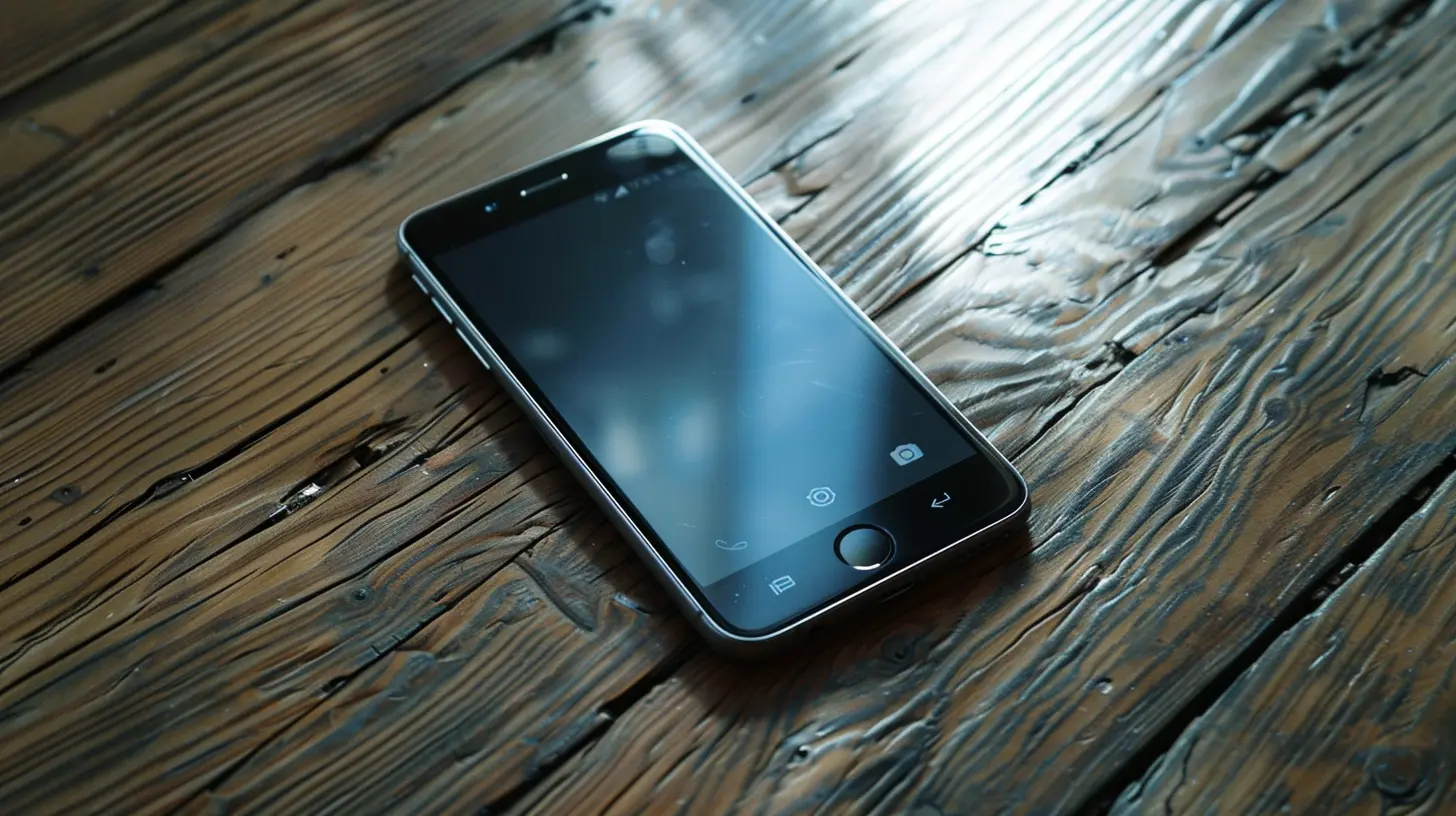Can Wireless Charging Harm Your Battery?
8 September 2025
Wireless charging has become a game-changer in the tech world. The convenience of simply placing your phone on a charging pad—no fumbling with cables—makes it a favorite for many users. But with all convenience comes concern. One of the biggest questions people ask is: Can wireless charging harm your battery?
Let’s dive into the science behind wireless charging, how it affects your phone’s battery, and whether you should be worried.

How Does Wireless Charging Work?
Before we get into the potential impact on your battery, let's quickly go over how wireless charging works.Wireless charging, also known as inductive charging, uses electromagnetic fields to transfer energy between a charging pad and your phone. Inside the charging pad is a coil that generates an alternating electromagnetic field. Your phone has a similar coil that picks up this energy and converts it into electricity to charge the battery.
It sounds futuristic, right? But this technology has been around for years—think of electric toothbrushes, which have been wirelessly charging for decades.

Does Wireless Charging Generate More Heat?
One of the main concerns with wireless charging is heat generation.Unlike wired charging, which has a direct electrical connection, wireless charging loses some energy during transmission. This lost energy turns into heat, and heat is one of the biggest enemies of lithium-ion batteries (which power most smartphones today).
If your phone gets excessively hot while wirelessly charging, it can speed up battery degradation over time. However, modern wireless chargers are designed with safety mechanisms to prevent overheating. Some even include built-in fans to keep things cool.
So, Should You Worry About Heat?
It depends. If you're using a low-quality wireless charger or charging your phone in a hot environment, excess heat can damage your battery over time. However, if you use a good-quality branded charger and ensure your phone isn't overheating regularly, the risk is minimal.
Does Wireless Charging Reduce Battery Lifespan?
The lifespan of a smartphone battery is measured in charge cycles. A charge cycle is counted when your battery goes from 0% to 100% and back down. Typically, most lithium-ion batteries last between 300 to 500 charge cycles before their capacity starts to degrade noticeably.Now, here’s the catch: Wireless charging has the potential to reduce battery lifespan faster than wired charging.
Why?
- Partial Charging: Wireless charging encourages frequent top-ups rather than full charge cycles. While partial charging isn't necessarily bad, frequent tiny charges can contribute to more cycle counts over time.- Trickle Charging: Once your phone hits 100%, some wireless chargers continue to provide power, keeping the battery at full charge. This "trickle charge" can lead to battery stress if your phone stays on the pad for too long.
- Charging Efficiency: Wireless charging is generally less efficient, meaning your battery may take longer to charge, keeping it in a heated state for longer.

Does Wireless Charging Cause Battery Swelling?
Battery swelling is one of the worst things that can happen to a lithium-ion battery. It occurs due to excessive heat, overcharging, or battery wear. While wireless charging alone doesn't directly cause battery swelling, it can contribute to the conditions that lead to it.If you’re using a cheap or unregulated wireless charger that overheats or delivers inconsistent power, your battery may degrade faster, increasing the risk of swelling over time.
How to Prevent Battery Swelling:
- Avoid wireless charging on soft surfaces like a bed or couch, as they trap heat.- Use a trusted brand with proper voltage regulation.
- Don’t leave your phone on the charging pad for extended periods after full charge.
Is Fast Wireless Charging Worse for Your Battery?
Fast wireless charging (15W, 25W, or even higher) is becoming more common. While it sounds great in terms of speed, it also generates more heat than standard wireless charging.Since heat is a major factor in battery degradation, fast wireless charging can be more harmful to your battery in the long run compared to standard-speed charging.
If you want to prolong your battery's life, consider using standard-speed wireless charging (5W–10W) for daily use and reserving fast charging for when you're in a hurry.
Does Wireless Charging Waste More Energy?
Aside from battery concerns, wireless charging is also less energy-efficient.If efficiency matters to you, here’s something to think about: Wireless charging wastes around 30% more energy than wired charging.
This wasted energy primarily turns into heat, which, as we discussed earlier, can negatively impact your battery over time. If energy conservation is important to you, plugging in your phone might be the better option.
Best Practices to Protect Your Battery While Using Wireless Charging
If you love the convenience of wireless charging but also want to protect your battery, here are some tips to keep in mind:1. Use High-Quality Wireless Chargers
- Stick to well-known brands like Anker, Belkin, or Apple-approved chargers.- Avoid cheap, uncertified charging pads.
2. Charge on a Hard, Flat Surface
- Avoid soft surfaces that trap heat, like beds or couches.- A well-ventilated surface helps dissipate heat better.
3. Avoid Overnight Charging on a Wireless Pad
- Some wireless chargers provide continuous trickle charging after reaching 100%, putting unnecessary stress on the battery.- If you must charge overnight, consider a smart charger with auto-shutoff.
4. Use Standard Wireless Charging Instead of Fast Wireless Charging
- Fast wireless charging generates more heat, which accelerates battery wear.- Stick to 5W–10W charging for daily use.
5. Monitor Battery Temperature
- Check if your phone gets too hot while charging. If it does, switch to wired charging for better efficiency.- Avoid charging in direct sunlight or hot environments.
6. Unplug When Your Phone is Fully Charged
- Letting your phone sit on a wireless charger unnecessarily can cause stress on the battery.- Try charging up to 80% rather than 100% for better battery health.
Conclusion: Should You Worry About Wireless Charging?
Wireless charging is incredibly convenient, but like anything else, it comes with trade-offs. Does it harm your battery? Not directly, but the heat generated during charging and continuous trickle charging can accelerate battery wear over time.If you use a high-quality charger, avoid overheating, and follow best practices, wireless charging is perfectly safe and won’t significantly damage your battery. Just be mindful of how often and how long you leave your phone on a charging pad.
So, should you give up wireless charging altogether? Not at all! Just use it wisely, and your battery will stay in great shape for years to come.
all images in this post were generated using AI tools
Category:
Wireless ChargingAuthor:

Vincent Hubbard
Discussion
rate this article
1 comments
Foster Reese
Wireless charging won’t ruin your battery. It’s convenient tech that enhances your daily life. Embrace the innovation without fear—it's here to stay!
September 21, 2025 at 4:21 AM

Vincent Hubbard
Thank you for your thoughtful comment! You're right—wireless charging is a convenient innovation that, when used properly, can enhance daily life without damaging battery health.


